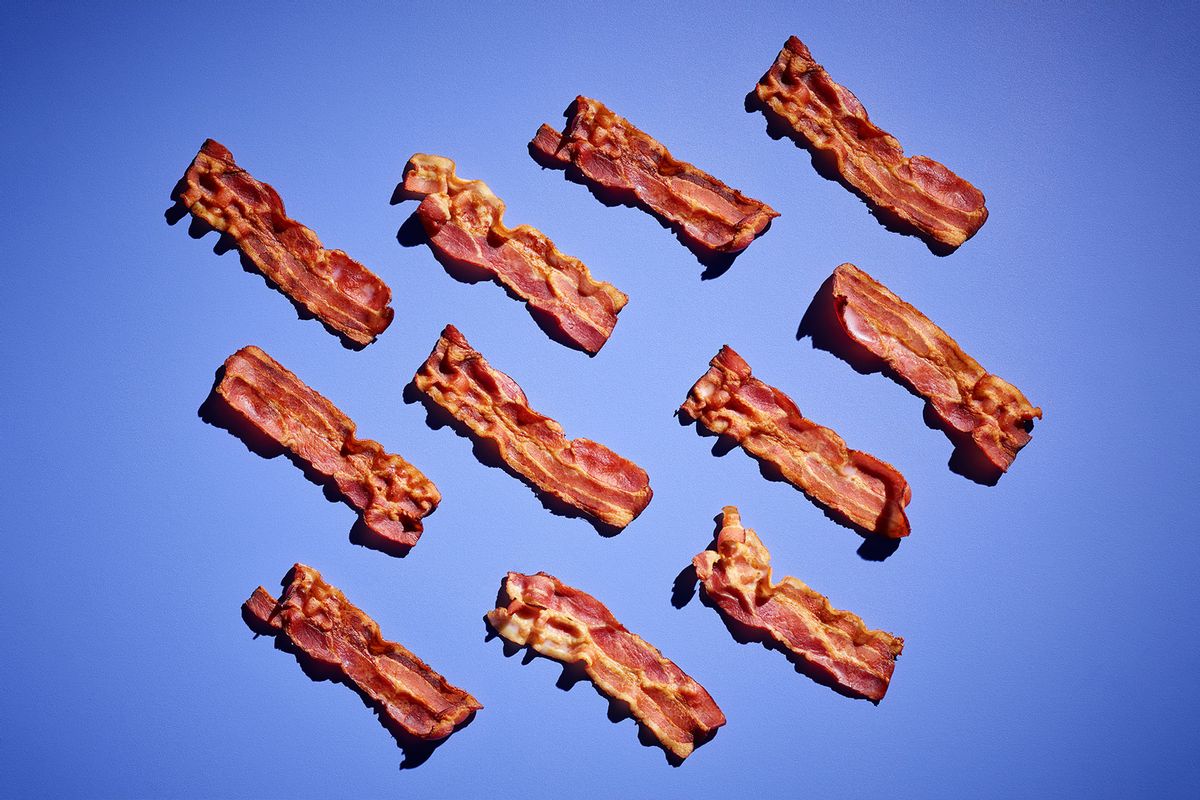I believe bacon is best made best made: 1) on a sheet pan in the oven 2) using thick-cut varieties 3) as well-done as possible, and 4) with seasonings and flavor additions to gussy up the taste. While many people use bacon to flavor other foods, many home cooks haven't discovered the culinary possibilities that come with treating bacon any other cut of meat and seasoning it before or after cooking.
As the MTA would say, though, "You do you!" I'm just here to provide some ideas, but you're the one eating the food and it's your kitchen, so tweak it to your tastes and as you see fit. If adding syrups, sugars, seasonings, or spices to your bacon isn't on the docket, that's all good! If you like the idea of adding extra flavorings to your bacon but don't want to turn the oven on, cool! If you're into chewy, not-well-done bacon, no biggie! Do whatever you like and as you please; at the end of the day, you're eating it. Use whatever might work for your tastes and discard the rest.
Meat-free? Consider trying some of the vegan or animal-free options available right now; there are some really terrific brands and products (I've never been a huge proponent of turkey bacon, so I've been pleasantly surprised with some of the plant-based additions now on the market).
Want more great food writing and recipes? Subscribe to Salon Food's newsletter, The Bite.
As far as flavors go, while I think a good miso-maple combination is ideal, there are many other directions you can go with the flavoring or customization of your bacon:
***
The one thing I'd advise against is anything inherently salty; the pork-y, salt-forward essence of the smoky bacon has that component down pat.
Be mindful that spices and seasonings might burn, so if you are planning on making super-crispy bacon, keep an eye on your sheet pan or skillet. Also if you're using sugar or any other sort of syrup, don't over do it: you don't want your sugar or agave to caramelize before the bacon has a chance to cook.
Or, conversely, go minimalist and throw some bacon — and nothing else — into the pan or oven. If this is up your alley, perhaps this might resonate with you: in culinary school, when making bacon that was going to be chopped and added to a Cobb salad, our instructor actually recommended taking one sheet tray, laying down a sheet of parchment, laying out the bacon end-to-end but not overlapping, and then *topping* that sheet tray with a second sheet tray. This helped to keep the bacon straight, flat and evenly cooked, with no wavy pieces or irregular, burnt ends. I don't often employ this method (washing the bottom side of the top sheet tray was always a step I wasn't willing to do!), but it's definitely a great idea if you want perfectly aesthetic and picturesque bacon (of course, though, this method restricts your use of toppings or additional flavorings).
Paraphrasing, "Mean Girls," "the limit does not exist" when it comes to the ways in which you can make bacon.



Shares